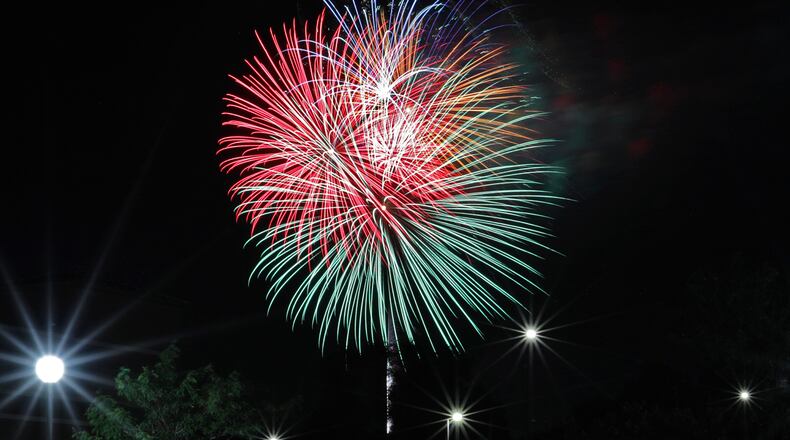House Bill 172 passed both houses of the General Assembly in October.
In June, the Dayton City Commission passed a resolution urging Ohio lawmakers to reject the first version of the fireworks bill. At the time, Mayor Nan Whaley said commissioners would pass a local ban on consumer-grade fireworks if the state legalized their possession and discharge.
On Tuesday, Torey Hollingsworth, Whaley’s senior policy aide, said there had not yet been any discussion on how or whether to act in the wake of the new law.
The law will immediately extend the moratorium on issuing new, or transferring old, firework manufacturer or wholesaler licenses to the end of 2022. There will be a one-time license issuance date at that time.
Ninety days after the law is filed with the Ohio Secretary of State, the state fire marshal will be required to adopt rules for the time, manner and location of consumer firework use.
One hundred days after that, there will be a new 4% fee on retail sale of consumer fireworks. That money will go to train firefighters and enforce fireworks regulations.
Starting in 2022, retailers can be licensed to sell ground-based or hand-held sparklers called “fountain devices.”
The maximum size for firework stores will increase from 5,000 square feet to 7,500 square feet, but they will have to equipped with sprinklers.
Starting July 1, 2022, Ohioans can own and consumer-grade fireworks and set them off on the following days:
· New Year’s Day;
· Chinese New Year;
· Cinco de Mayo;
· Memorial Day weekend;
· Juneteenth;
· July 3, 4 and 5, and the Fridays, Saturdays and Sundays preceding and following;
· Labor Day weekend;
· Diwali; and
· New Year’s Eve.
Local governments will be able to restrict the dates and times people can set off consumer-grade fireworks, or ban them completely.
Previously Ohio has allowed sale of some consumer-grade fireworks, but required that they be taken out of state within 48 hours.
DeWine said it was clear to him that the General Assembly would have overridden another veto, so he worked with legislators to make some changes.
“For example, the bill I signed (HB 172) limits the discharge of fireworks to the more traditional holidays that Ohioans celebrate, while recognizing our numerous culturally diverse holidays,” he said in a news release. “The compromise bill also reduces, by half, the allowable increase in showroom size originally offered in Senate Bill 113, while requiring enhanced fire sprinkler systems. The measure further prohibits the discharge of fireworks while in possession of, or under the influence of alcohol or controlled substances or on another person’s property without that person’s permission.”
Sens. Michael Rulli, R-Salem, and Terry Johnson, R-McDermott, introduced SB 113 in March. It passed both houses in June, but DeWine vetoed it in July.
In his veto statement DeWine said SB 113 would have allowed the public to set off fireworks on at least 25 separate holidays, and increased the maximum size of fireworks stores to 10,000 square feet without requiring sprinklers.
Highlighting his concerns, DeWine referred to the July 3, 1996, fire at the Ohio River Fireworks store in Scottown. Started by a lit cigarette, the fire and resulting explosions killed nine people and injured 11.
About the Author

